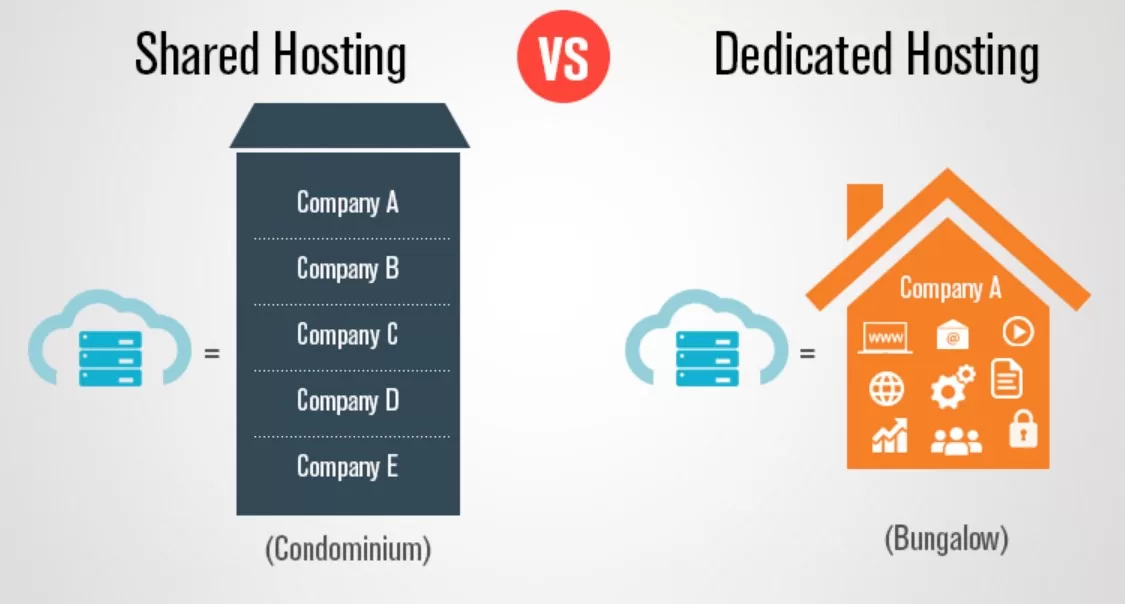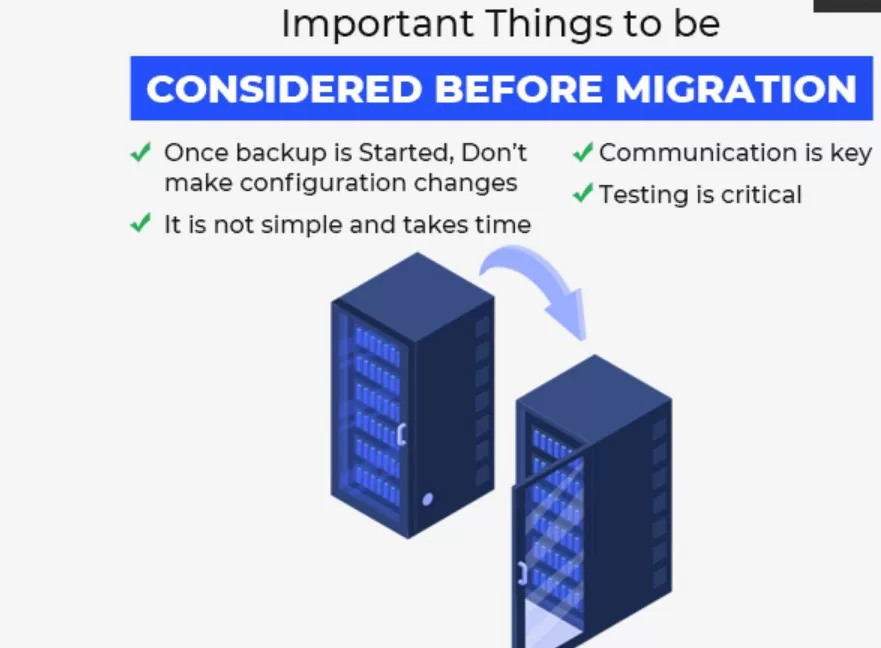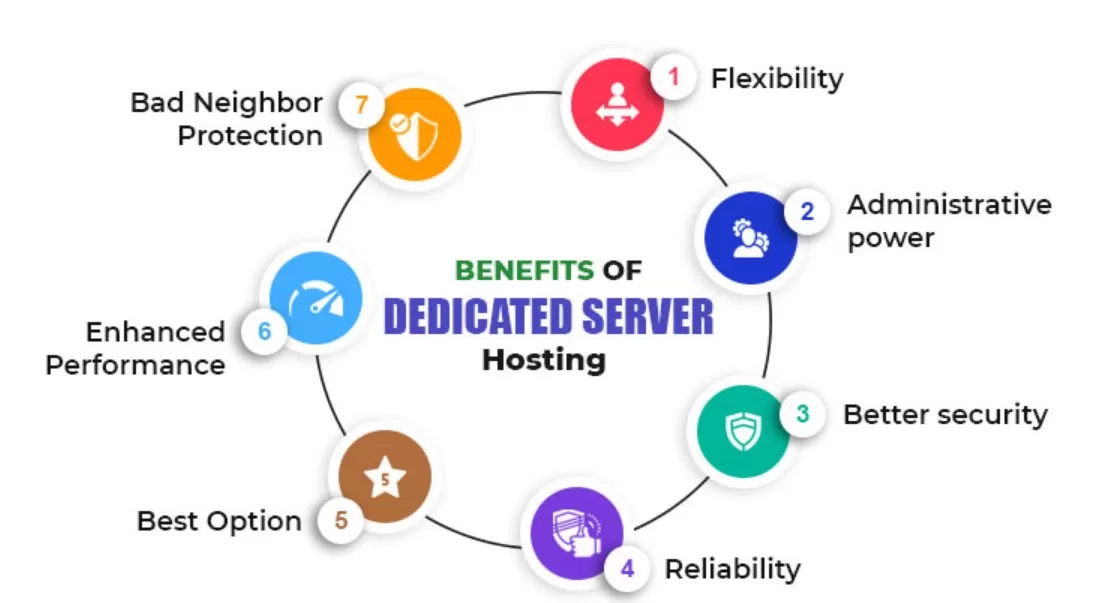Blogs

Data Center Outages: 10 Things You Should Know
August 16, 2023
Complete Guide To Managed WordPress Hosting
September 11, 2023What are Differences Between Shared Hosting and Dedicated Servers?
Before Scaling Your Website we embark on deciphering the signs of outgrowing shared hosting, let’s delve into the differences between shared and dedicated hosting.
- Shared Hosting:
- Dedicated Servers:
- Warning Signs That Shows Its Time To Upgrade From Shared Hosting
- Slow Website Performance:
- Traffic Spikes:
- Security Concerns:
- Limited Resources:
- Control and Customization
- Search Engine Rankings:
- How To Migrate From Shared Hosting To Dedicated Hosting?
- Needs Assessment:
- Selecting a Reliable Hosting Provider:
- Safeguarding Your Digital Valuables:
- Migrating Carefully:
- Test and Optimize:
- Monitor Performance:
- Advantages of Migrating Your Website To Dedicated Hosting
- Scaling Your Website / Better Performance:
- More Resources:
- Stronger Security:
- Always Up:
- Better for SEO:
- Conclusion
Shared Hosting:
Operating within a shared hosting milieu entails multiple websites coexisting on the same server, pooling resources such as processing power, memory, and bandwidth. This option is suitable for fledgling websites with limited traffic, yet as virtual neighborhoods flourish, resource contention can emerge.
Dedicated Servers:
In stark contrast, a dedicated server allocates an entire server exclusively to a single website or application. The benefits are profound – abundant resources, elevated security, and meticulous control over the server’s ambience.

Warning Signs That Shows Its Time To Upgrade From Shared Hosting
Here are some of the warning signs that tell you that it is time to upgrade from shared hosting to dedicated hosting.
Slow Website Performance:
If your website experiences slow loading times, especially during peak traffic periods, it’s a strong indicator that shared hosting is no longer sufficient. A dedicated server offers the resources needed to handle high volumes of traffic without sacrificing performance.
Traffic Spikes:
The tide of popularity sweeping your website heralds growth, yet shared hosting’s limited resources can strand you amidst the surge. Dedicated servers offer a lifeboat for e-commerce stores, gracefully managing the influx of visitors during the holiday season.
Security Concerns:
Shared hosting environments pose security risks, as one compromised website can potentially affect others on the same server. If your website handles sensitive data or requires a higher level of security, a dedicated server provides better isolation and enhanced security measures.
Limited Resources:
Shared hosting shackles you with resource quotas, stifling CPU usage, memory allocation, and disk space. Frequent clashes with these limitations, resulting in downtimes or errors, affirm the need for a dedicated server replete with generous resources.
Control and Customization
Websites metamorphose with time, often necessitating bespoke software or applications. Shared hosting’s standardized setup impedes such evolution, whereas a dedicated server opens avenues for tailored configurations.
Search Engine Rankings:
Website speed is a significant factor in search engine rankings. If your site’s performance is hampered by shared hosting, it can lead to lower search engine rankings and reduced visibility.
How To Migrate From Shared Hosting To Dedicated Hosting?
Seamlessly orchestrating the migration from shared hosting to a dedicated server necessitates strategic planning. Here’s a meticulous roadmap for a flawless transition:
Needs Assessment:
Scrutinize current and projected website requisites, encompassing traffic projections, resource demands, and security imperatives. This blueprint guides your choice of the optimal dedicated server configuration.
Selecting a Reliable Hosting Provider:
The dedicated server terrain harbors a multitude of providers, each with unique virtues. Rigorous research is indispensable to identify a provider aligned with your needs. Factor in server location, testimonials, and customer support responsiveness.
Safeguarding Your Digital Valuables:
Prudent pre-migration practice involves a comprehensive data backup. Ensuring data integrity minimizes the risk of loss during the transition.

Migrating Carefully:
The migration choreography mandates meticulous planning. This intricate dance could encompass file replication, database transfer, and the transference of configurations to the novel server.
Test and Optimize:
After migration, thoroughly test your website on the new server to identify any issues. Optimize server settings for server performance and security.
Monitor Performance:
Regularly monitor your website’s performance and resource usage on the dedicated server. This will help you identify and address any emerging issues promptly.
Advantages of Migrating Your Website To Dedicated Hosting
Here are some of the benefits you will get when you migrate from shared hosting to dedicated hosting.
Scaling Your Website / Better Performance:
Dedicated servers provide consistent and strong performance, even when lots of people are visiting your website.
More Resources:
As your business grows, dedicated servers can easily handle increased demand. It’s like having a bigger canvas that can adapt to your needs.
Stronger Security:
With dedicated servers, your website is separate from others, so you’re protected from security problems that might happen with shared hosting.

Always Up:
Dedicated servers have great uptime, meaning your website is almost always available for people to visit.
Better for SEO:
How fast your website works affects how well it shows up in search engines. Dedicated servers make your website work better, which helps with your search engine ranking.
Switching to dedicated servers costs more than shared hosting, but it’s a smart investment. The money you spend is worth it because your website will perform better. Think of it like spending money to make more money, thanks to happier users who have a better experience on your site. Small businesses can also save money while buying a dedicated server.
Conclusion
In the journey of website growth Scaling Your Website, transitioning from shared hosting to a dedicated server is a significant milestone. Recognizing the signs that your website has outgrown shared hosting is crucial for maintaining optimal performance, security, and user experience. As your website’s demands increase, investing in a dedicated server can provide the resources, control, and reliability necessary to support your online presence and accommodate future growth.
Did this article help you in understanding when and how to migrate your website from shared hosting to dedicated hosting? Share your feedback with us in the comments section below.
Featured Post
How Long Does Server Maintenance Last?
Table of Contents What is Server Maintenance? Why Does It Need Regular Maintenance? Factors Affecting the Duration of Server Maintenance last 1. Scope of the Maintenance […]
Server Hardening: 10 Steps Checklist For Server Security
Server hardening is the process of securing a server by reducing its surface of vulnerability. A hardened server is resistant to attack as its potential vulnerabilities […]
Unturned Server Hosting: How to Host and Play with Friends
Table of Contents How to Play with Friends in Unturned? 1. Using Steam Friends 2. Creating a LAN Party 3. Using a Hostnoc Dedicated Server How […]





